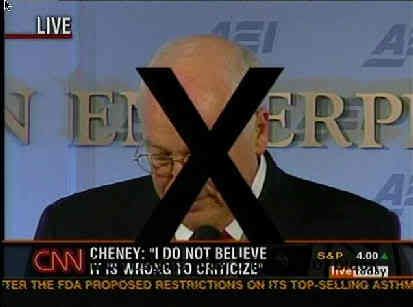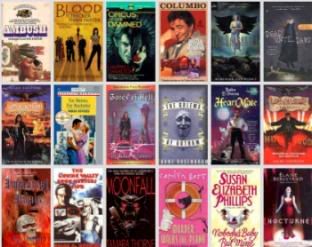I'm thinking of the proposed clemency for Crips' street gang founder Stanley Tookie Williams. Should Ah-nold commute his sentence to life or not? I don't know how I feel about that.
In figuring it out, I have to ask myself does our court system exist to serve the law or to serve justice (because, all sentiment aside, they ARE two distinctly different agendas). We all want to think that our system is just and justice is served with each and every verdict. Justice for the victim and the victim's bereaved loved ones comes immediately to mind. Justice for society - we don't want murderers walking among us. And, if we kill the killers, problem's solved. Permanently. It is just, no?
But, what's fair and right and just isn't always what the law dictates. It's hard to understand how that can be possible but it is possible many times in a court day.
Laws are lists of rules of how we, as private individuals, and our government must conduct itself. Without the list of rules, we would have anarchy. Some folks like that idea, actually. But I'm not an anarchist. I'm a Virgo. I like things in their proper place.
If we do not follow the law, the rules, then there is no glue holding society together in some sensible fashion and none of us is safe. Would you really want to live in fear of mob dictatorship or bully rule?
So we must do as the law says. If one is a member of a jury, say on the O.J. jury and you are pretty damn sure that blood trail leading from crime scene to O.J.'s front door means he did it, is "pretty sure" good enough to convict? What percentage is "pretty sure?" Does that mean you are 75% sure? And if there is a reasonable doubt because it is just as obvious that police investigators tampered with some of the evidence just to make sure the guilty guy was found guilty, what does the law demand that you do - even if you feel it would not be "just?"
See where I'm going? The law must be followed, no matter where our hearts and sentiments may lie. If we do not follow the law, we do not have any semblance of a safe society in which to live.
Take a hypothetical imaginary criminal case of theft. An employee at a large restaurant chain cannot afford to feed his family on the minimum wage he earns. Is it just? Probably not. Is it legal, in accordance with our system of laws? Absolutely yes, so long as the employer meets the minimum wage standard. But, suppose the employer indulges in a little criminal activity of their own and not only do they pay minimum wage, they go into the employee's time records and alter them so as to remove 15% of the hours they've worked. If the employee works a 40 hour week, that means they would have worked six of those 40 hours for free, i.e., slave labor which we all know is illegal.
The employee knows if they complain to their employer or any government office, they will lose their job so they keep their mouth shut even though the theft of their hours makes their family suffer even greater loss. Losing the job altogether is not an option.
But the family must eat. They must be clothed. The house needs heating during cold weather. Bills never stop coming.
So one day, the employee sees a customer send their food back to the kitchen and he packs it up in a to-go box and takes it home to his family. The next day, not only is he fired, he finds himself placed under arrest and charged with the crime of theft. Is it just? Hell, no. But did this employee break the law and does the employer and we, as a society, have a right to expect that the law will be enforced? Sadly for our hypothetical employee, yes, even here the law must be followed. Even when all sentiment is on the side of the employee, the law applies to him, too.
Oh, one day the employer's shenanigans will also catch up to them, as well.
So we can and do find many times over in our courts when achieving justice is completely outside the scope of what our laws allow us to do.
Our court system must obey and enforce our laws.
So, Mr. Williams was charged with and convicted of murdering four human beings. If all law was followed and the strict rules of how murder trials must proceed were followed, it would seem Mr. Williams and society both had their "fair day in court" and there would be no grounds to appeal a conviction or the death penalty in this case. It would appear that the law does not demand that clemency be granted at this late stage.
I don't believe the law can take into account sentimentalism and popularity points and how many celebrities can you attract to your side. There are no such laws that demand of a judge or a governor, "You must save this man's life because now he is popular or because some movie stars like him."
Oh, but after the fact of the murders this man did such great good deeds from within prison walls that he was even nominated for the Nobel Peace Prize (this is actually true in Mr. William's case). This man has turned crime and tragedy into life-affirming triumph by the sheer numbers of young minds he has turned away from the gang lifestyle. This man has saved lives. Yes, I do believe he has.
But where does the law say this man's conviction or death penalty decision must be overturned because after the fact of a crime, he decides to become a decent human being? No, NOT what is just. Justice is not the end goal of our courts. The law is. There may be a great deal of evidence suggesting and even proving how unjust Mr. William's execution would be. But is it law?
And what if the people and Mr. Williams did NOT have their fair day in court? What if there were errors made in evidence? What if, once corrected, those errors might very well prove Mr. Williams' innocence in one or two or three or all four murders? Does the law demand that an innocent man be put to death?
Can we make Mr. Williams be innocent of these crimes simply by willing it so? Of course not. What do you say to the angry advocate for the death penalty who shouts, "What difference does it make, innocent or guilty? He was a gang member! Surely, he did other crimes! He
deserves to die! It's
Justice!"Justice vs. The Law. Well, what does the law say? In Mr. Williams' case, we may never know and that's because he is scheduled to die before all his appeals have been exhausted. A petition stands now before the Supreme Court to ask that they consider the "shoddy evidence handling" in Mr. William's case and whether or not that could possibly entitle him to a new trial.
But, a dead man cannot go to trial. A dead man is just dead. And, so far, that is exactly what Mr. Williams is going to be as of December 13, 2005.
Unless... Ah-nold has granted a hearing for December 8. The law grants him the right to decide if Mr. Williams should get clemency (death turned into life without parole). If I was the governor, I don't think I would have any problem at all granting at least a stay of execution until the Supreme Court can review Mr. Williams' petition. At least allow the law to run its full course. To do anything else would not be a good thing for society. In my opinion.
What's your opinion?





































